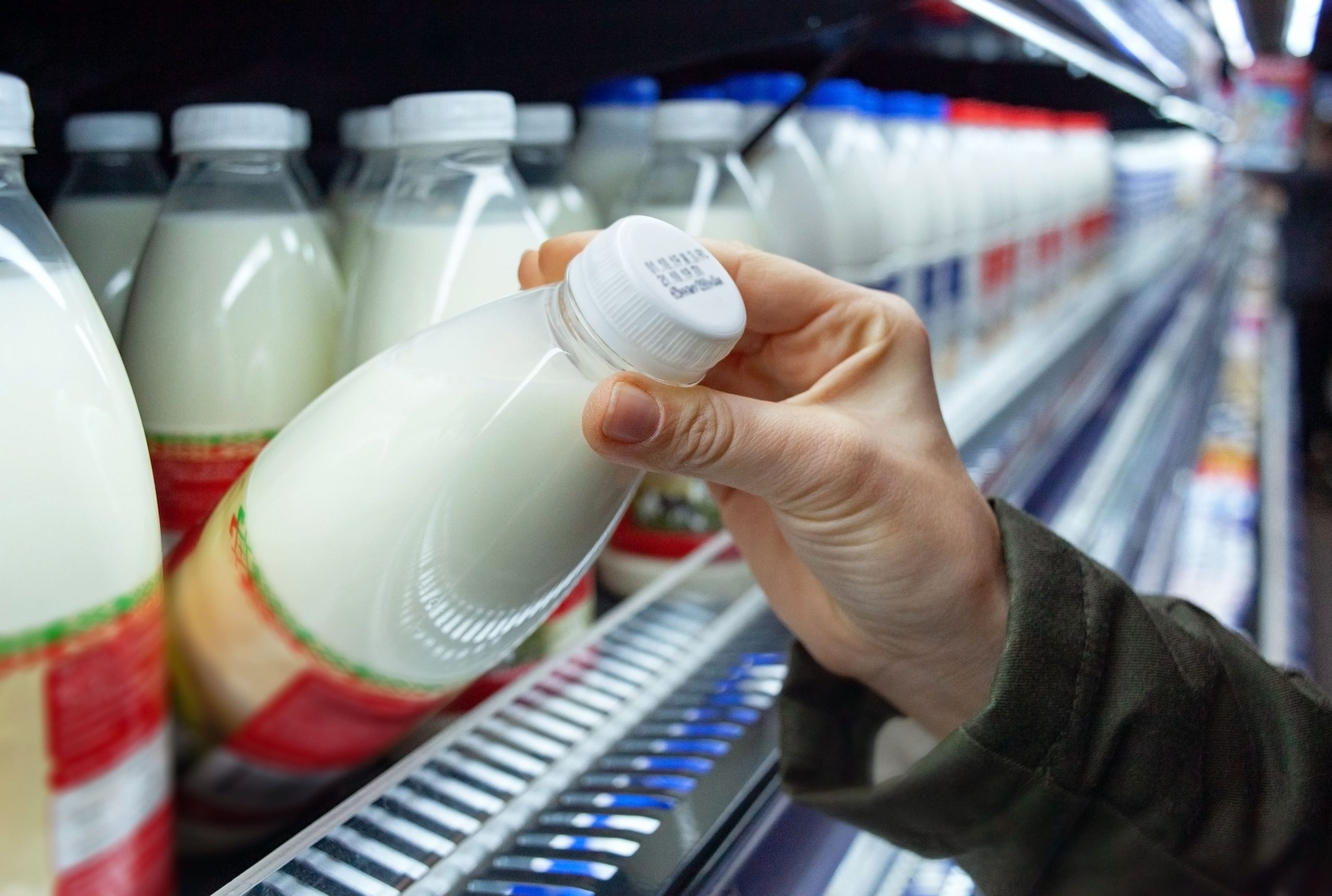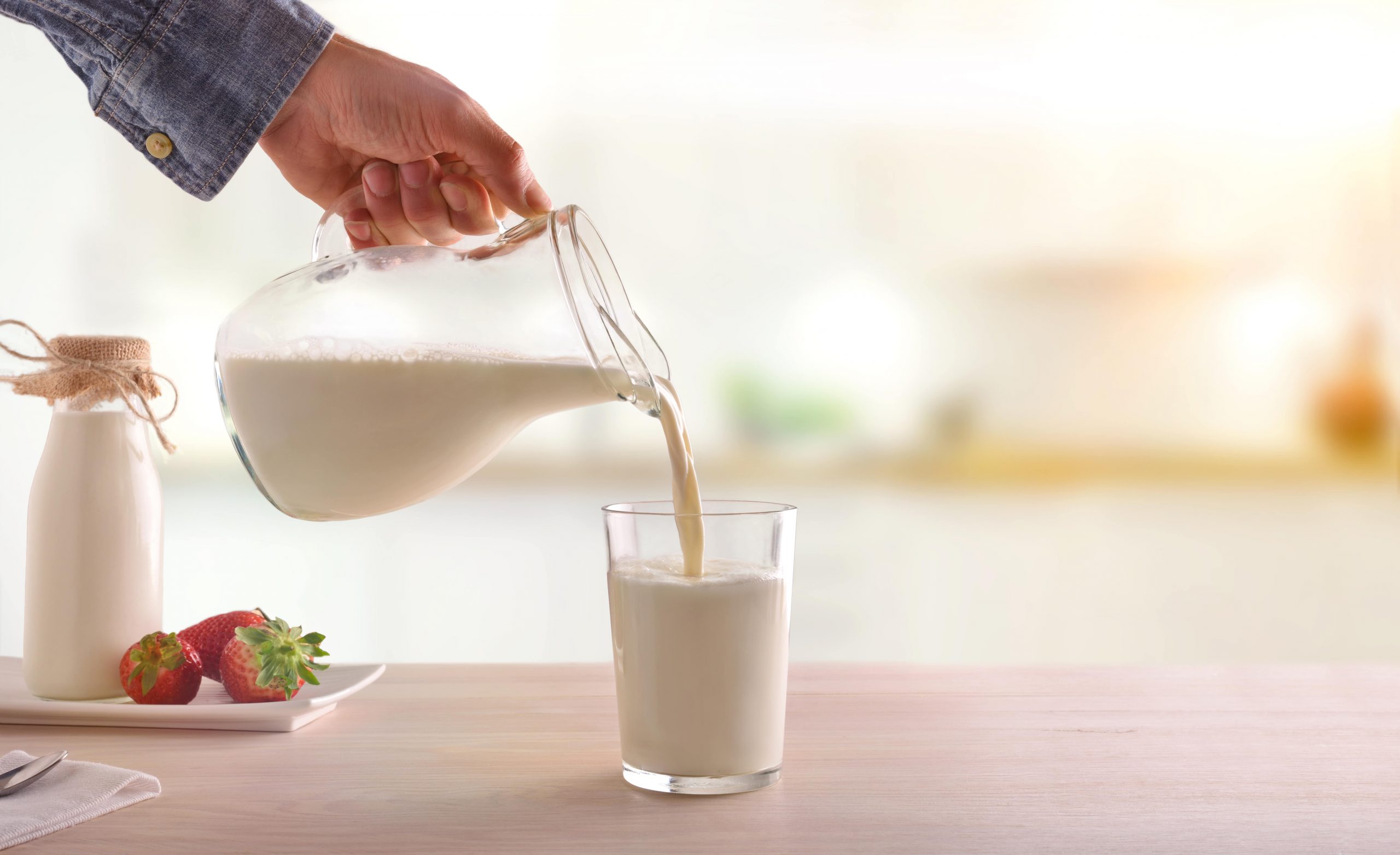There are several milk and milk options that color the dairy aisles. Knowing the best of these helps you know what to go for in case you run out of cow’s milk or want to experiment with something different.
Cow’s milk is the most popular milk around the world and many people depend on it and its products. However, there are other tons of milk options you would like to try that differ from the popular cow’s milk in terms of nutritional profile and other benefits. Besides, some people are allergic to dairy products and would like to find something that despite being non-dairy, is still nutritious. We can’t avoid mentioning that other fellows are curious and just want to try out something new. Still, the variety of options is a problem itself, as some people get confused at the grocery stores and don’t know what option to go for. Are you one of them, and often find yourself in dilemma? This article is meant for you and will help you know the best milk options you would like to try.
i. Cow’s milk
Cow’s milk is like the veteran of milk and milk options, it is the original milk passe. With its impressive nutritional profile, cow’s milk is almost unbeatable. For instance, the regular-sized cupful of 2% milk has 122 calories, 4 g fat, 8 g proteins, 12 g sugar, 12 g carbs, and 0 g added sugar. Besides, it has quite a good amount of calcium, potassium, and magnesium, and fibers are the only dietary component you don’t reap from cow’s milk. It also has vitamin B12, which is critical for energy production, red blood cell manufacture, and safeguarding the brain. Fortified brands of cow’s milk harbor vitamin D, which is only found in fatty foods like salmon and eggs and is thus hard to come by. Although its sugar content may seem a bit out of the figure, cow’s milk is entirely natural (lactose) and does not include added sugars which pose health risks.
ii. Hemp milk
Hemp milk is plant-based and produced from dried and ground hemp seeds. It is probably the healthiest choice among plant milk and milk options, especially because it is heavily packed with omega- 3 and 6 fatty acids, which are two forms of unsaturated fats the body needs for brain health, good eyesight, and improved cognition. The regular-sized 240 ml cup of hemp milk is loaded with 0 g sugar, 60 calories, 5 g fat, 0 g carb, and 3 g protein. While it’s rich in protein and fat, hemp milk is literally carb and sugar-free. It also packs 10%, 15%, 20%, and 25% of RDI values of iron, magnesium, calcium, and phosphorus.
iii. Oat milk
Oat milk is another healthy milk option you want to try because of how sweet and creamy it is. It is prepared by soaking whole grains in water, producing nutritious milk with soluble fiber. The soluble fiber has multiple roles in the body, including increasing satiety & reducing hunger, controlling blood sugar levels, lowering bad cholesterol levels, and mixing with food to form a gelatin-like mass which rolls along the tract while slowing bowel movement, ultimately preventing constipation. Drinking the 240 ml cup of oat milk supplies the body with 120 calories, 3 g proteins, 5 g fat, 16 g carbs, and 2g fiber. Besides, the milk has significant amounts of naturally-occurring vitamins A, B12, riboflavin, and D, as well as magnesium, calcium phosphorus, and potassium. Oat milk is especially valued for its fiber content which makes it pretty filling and exclusively creamy.
iv. Almond milk
This is another non-dairy milk option that suits people who are allergic to dairy products but have to drink milk and those who are on a low-carb diet because the milk is quite low in carbs. However, those with a tree nut allergy cannot take it since it may trigger allergic reactions. It’s also low in calories hence good for weight loss but it is equally low in proteins and other vitamins, including A and D, meaning that it might be unfit for those who need proteins. The 240 ml cup provides the body with 1 g protein, 2 g carbs, 41 calories, 3 g fat, and 50% of the RDV vitamin D. In making the milk, many companies use carrageenan to prevent the milk components from separating. Because the compound has attracted a lot of controversies and is even believed to trigger inflammation and intestinal cell damage, you might want to reconsider whether or not to try almond milk.
v. Coconut mil
Coconut milk is an ideal option if you are allergic to dairy products and tree nut allergy. It is prepared by squeezing the white coconut flesh and filtering the liquid. Although it has a great flavor, coconut milk is low in proteins and has virtually none, which is why some companies fortify boxed coconut milk with proteins and other nutrients. The 240 ml cup of coconut milk has 0 g protein, 46 calories, 1 g carb, and 4 g fat. The milk is high in fats and rich in triglycerides, which are critical for boosting good cholesterol count.
vi. Rice milk
Rice milk is prepared by blending rice to form the drinkable liquid and straining it of any solids. Like cow milk, rice milk has natural sugars but no added ones. For the 240 ml rice milk, the body gets 120 calories, 23 g carb, 2 g fat, and 1 g protein. However, the milk lacks any fibers. Still, it is loaded with 20 mg and 0.4 mg of calcium and iron. Since some companies add artificial to rice milk, check the ingredient list to be sure that the milk you are buying does not have unnecessary additives.
vii. Soy milk
If you are allergic to cow’s milk, soy milk will definitely be a good choice for you because it is nutritionally close to cow’s milk and is a wholesome protein source. The 240 ml serving of soy milk has 12 g carb, 6 g protein, 105 calories, 4 g fat, and no added sugar. It is also packed with vitamin B12, riboflavin, niacin, calcium, and magnesium, making it ideal for energy production and strengthening bone mass.
Conclusion
There are several milk and milk options you can explore whether you are out to try something new or are allergic to particular substances. For instance, if you are lactose-intolerant, hemp, almond, or soy milk will be a good alternative. On the other hand, coconut or rice milk suit those who have tree nut and lactose allergy.









